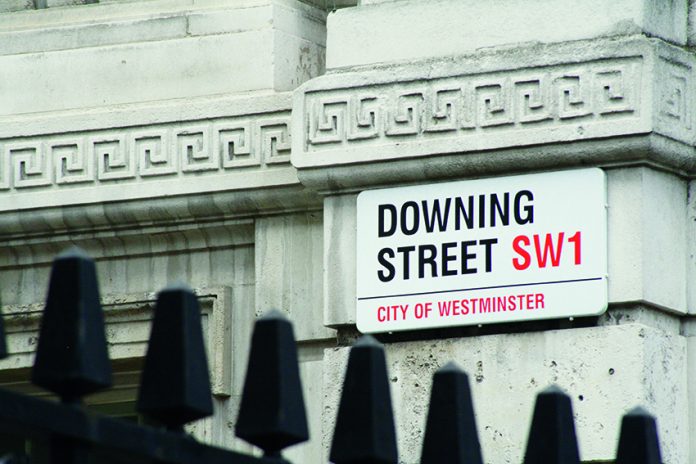
By David Saffer
Prime Minister Rishi Sunak has vowed to put “economic stability and confidence” at the heart of government.
Tough decisions await with the country facing a “profound economic crisis”.
Sunak said he would endeavour to “fix” the mistakes made by predecessor Liz Truss’ brief administration. Markets have stablilised but they will be tested when Chancellor Jeremy Hunt delivers his fiscal statement on Monday.
The Tory leader put together a ‘unity’ cabinet following the disastrous 45-day Truss tenure.
Headline appointments include Dominic Rabb as deputy Prime Minister and justice secretary, James Cleverly as foreign secretary and Ben Wallace as defence secretary. Michael Gove returns as levelling up secretary. There was surprise in the media that Suella Braverman was reappointed home secretary a week after resigning from the role for a breach of the ministerial code.
Sunak, 42, became Prime Minister on Monday after Boris Johnson and Penny Mordaunt, who remains leader of the House of Commons, dropped out of the leadership race.
Prime Minister Yair Lapid tweeted “congratulations” to Sunak.
“Israel and the United Kingdom are close allies,” he wrote. “We share not only mutual interests, but an unwavering commitment to democratic values. I look forward to working together to shape a stronger, safer future for both our countries and peoples.”
Chief Rabbi Ephraim Mirvis led communal support, noting the appointment of a first British PM from a minority faith community was a “proud milestone” in British history. He also extended “every blessing” to Sunak in “profoundly difficult” circumstances.
The Board of Deputies and Jewish Leadership Council look forward to discussing key community issues. National Jewish Assembly chairman Gary Mond believes Sunak will be regarded by the Jewish community in a positive light due to his position on Israel, BDS and the Iranian threat.
Sunak wrote to Conservative Friends of Israel supporters ahead of the leadership contest last summer outlining his support for Israel and UK Jewish community.
Sunak was “proud” to be a friend of Israel, called to strengthen bilateral ties and would defend Israel’s right to defend itself. In his lifetime, Sunak said the government had elevated the UK-Israel relationship to its ‘strongest position’. As PM would ‘continue to grow’ that connection.
Sunak pledged to fight Iran’s destabilising activities, secure a UK-Israel Free Trade Agreement and honour a manifesto commitment to combat BDS with legislation. He was committed to combating antisemitism and backs construction of a National Holocaust Memorial and Learning Centre.
Sunak delivered his first speech outside Downing Street after an audience with King Charles at Buckingham Palace on Tuesday morning.
“Our country is facing a profound economic crisis,” he said, highlighting the impact of Covid-19 pandemic and Vladimir Putin’s war in Ukraine destabilising energy markets and global supply chains.
Recalling how he protected people and businesses with the furlough scheme, he noted: “I will bring that same compassion to the challenges we face today. The government I lead will not leave the next generation, your children and grandchildren, with a debt to settle that we were too weak to pay ourselves. I will unite our country not with words, but with action.”
Sunak said he would lead a government with “integrity, professionalism and accountability” at every level.
Observing the Tory 2019 mandate was not the “sole property” of one individual, Sudak noted he would deliver the mandate that included a stronger NHS, better schools, safer streets, border control and Brexit opportunities.
Sunak concluded that he would restore trust in a government representing the “very best traditions” of the Tory party.
Truss’ cabinet had a final meeting at Downing Street before a group photograph. She remained defiant over her actions that crashed the financial markets in an outgoing speech.
Three former PM’s will be the back benches for the first time since 1983 in Truss, Johnson and Theresa May.









